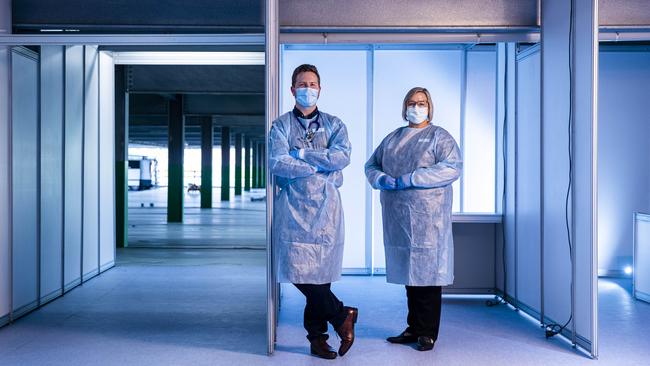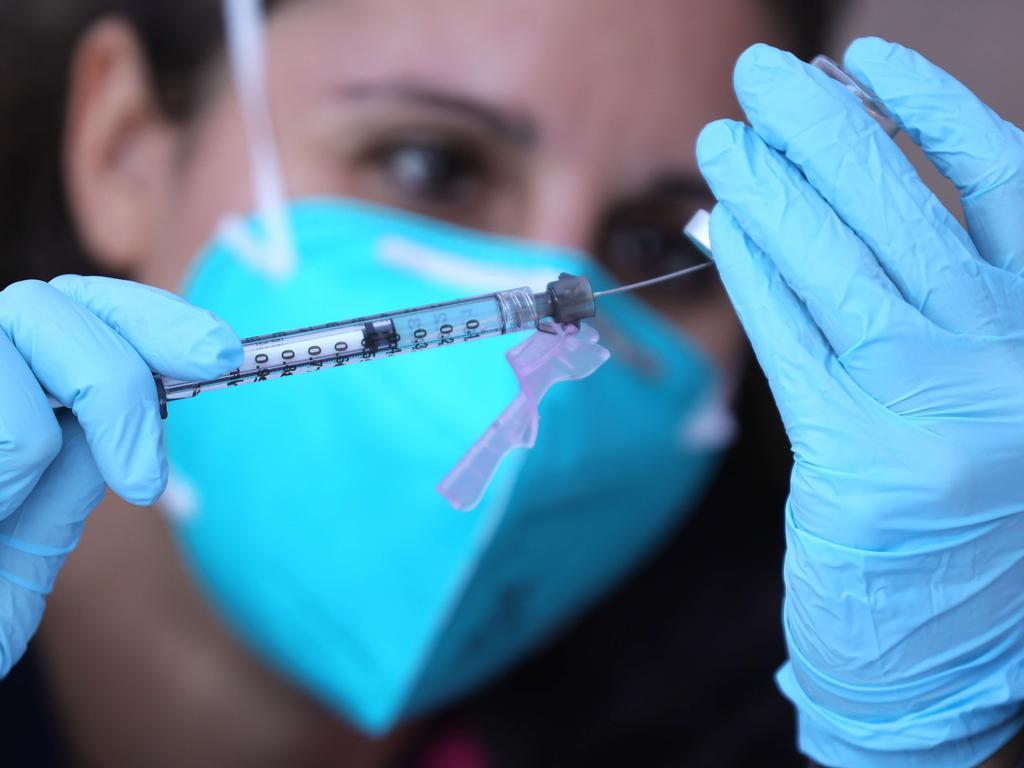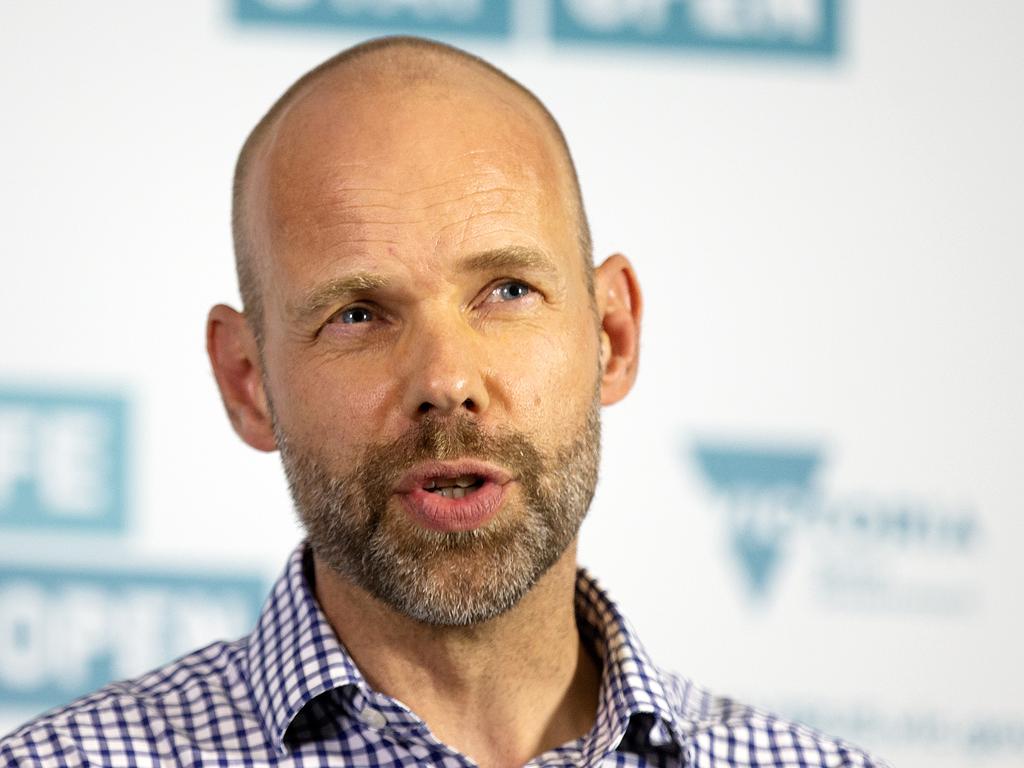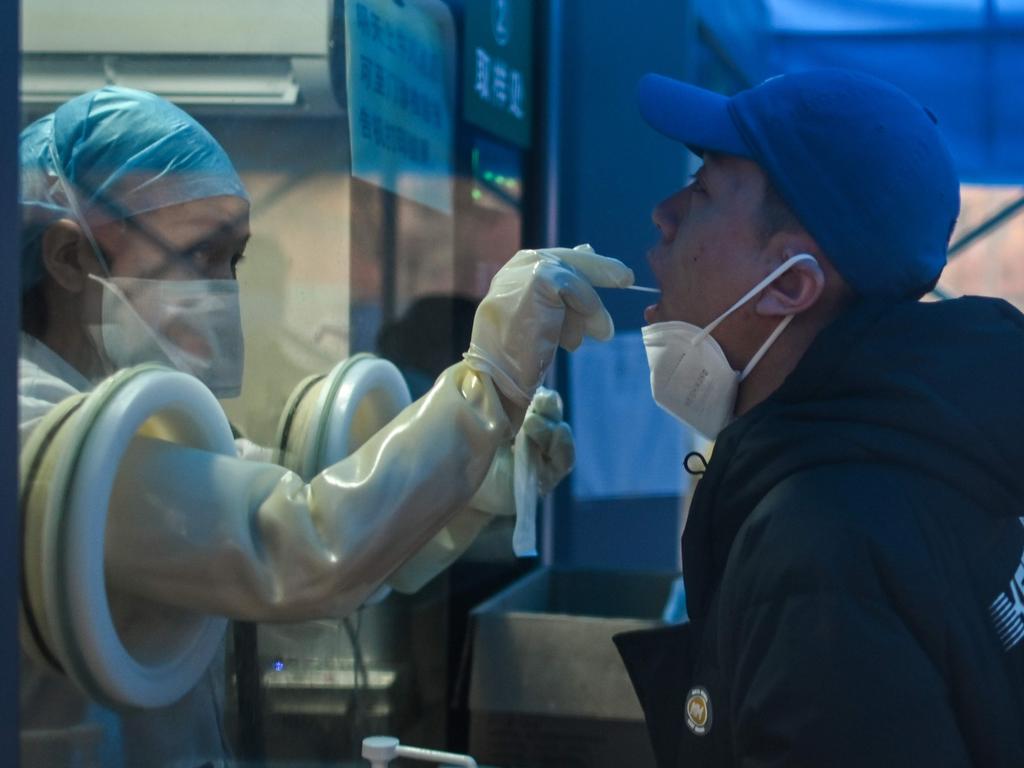Ultra COVID-19 vaccine freezer hot to trot in the hub of hope
In a Melbourne hospital carpark, a new freezer has been switched on where some of the first vaccine doses will be administered in as little as 10 days.

On the ground floor of a multi-storey carpark at a hospital in Melbourne’s west, a brand new ultra-cold freezer has been switched on.
A prize new purchase of Sunshine Hospital, it sits surrounded by half-constructed cubicles of prefabricated plywood, hurriedly erected in preparation for the biggest vaccination effort in Australia’s history.
If all goes to plan, this vaccination hub will administer some of the first doses of COVID-19 vaccine in the country in as little as 10 days’ time.
The EU granted clearance on Wednesday for the export of two shipments of Australia’s first Pfizer vaccines, while Australian pharmaceutical company CSL is set to begin filling multi-dose vials with AstraZeneca vaccine — the final step in its manufacturing process — ahead of the first local supply.
Scott Morrison will visit CSL’s Parkville facility in Melbourne on Friday to see the first local AstraZeneca doses put into vials, labelled and packaged ahead of extensive quality checks throughout March.
When the first Pfizer vaccines arrive onshore, the Therapeutic Goods Administration will complete a quality assessment of each batch before the vaccines are released for use by hospitals.
Western Health, which manages Sunshine Hospital, will prepare to administer the first vaccinations at Melbourne airport from February 22, provided the Pfizer vaccine arrives on time and batch testing proceeds smoothly.
Once the hub at the hospital begins to vaccinate healthcare workers and eventually the general population, it will be able to vaccinate 2500 people each day.
“When the Victorian government approached us and asked us to be a vaccination hub, we knew we didn’t have the space to be able to something of this scale,” says Shane Crowe, the executive director of nursing and midwifery at Western Health, who is leading the district’s vaccination project.
“We want to do this well, and as safely and efficiently as we can, and we realised that our best space was the ground level of our multi-deck carpark.”
Professor Crowe’s team, made up of pharmacists, nurses, a project manager and engineers, had just four weeks to prepare its makeshift hub for the beginning of the vaccination rollout.
“It has been some long hours and hard work, but we’re really buoyed by the fact that this is just such an important thing to be doing,” Professor Crowe says.
One of the team’s first jobs was the purchase of an ultra-low-temperature pharmaceutical freezer, which cost $20,000 and can fit 50,000 doses of vaccine.
The freezer was switched on for the first time on Tuesday and connected with real-time monitoring equipment that pings out alerts if the temperature rises above minus-70C. It had to be connected to its own special line of power that guarantees it an uninterrupted supply in the event of power failure, to guard against vaccine wastage.
The Pfizer vaccine must be stored at ultra-low temperature, and when it comes out of the shipper boxes packed with dry ice that the vials will be transported in from Belgium, the pharmacists in charge of handling the cargo will need special gloves to protect their hands from freezer burn.
“Two people will unpack the shipper boxes,” says Kent MacMillan, the director of pharmacy at Western Health. “One will unpack the outer packaging and they’ll need to maintain the cold chain. They’ll have to get it into the freezer within five minutes.”
The Pfizer vaccine doses must be used within days if their temperature rises above minus-70C. They can be stored in a normal refrigerator for up to five days.
One of the first tasks of vaccination hub workers after the vials have been safely frozen will be to prepare a portion for defrosting for transport to Melbourne airport. The vaccine will be transported to the airport in portable fridges. A clinic is being set up at the airport that will be the site where the highest priority groups — all international port-of-entry workers — will be among the first Australians to receive the jab. That will include flight crews, Customs staff, airline cleaning staff, caterers, security guards and frontline workers on international ports. Quarantine workers will also be vaccinated first.
Jabs for the highest risk healthcare workers back at the hospital hubs will follow next at the beginning of March.
As the unit manager for Western Health’s COVID vaccination hub, Kylie Roper is one of the nurses who will be administering the vaccine to her colleagues, and will be among the first to get the jab. “I’m really excited to be part of something like this,” Ms Roper says. “We took the brunt of the outbreaks in Victoria, we had the most patients in our ICU. It was a long hard slog for those healthcare workers in ICU. It was long hours in extreme PPE gear, just always with that fear of taking the virus home to your family, and having to be there for those people who couldn’t bring their families in to say goodbye.
“They were there as that last line of support, which as you can imagine would be absolutely heartbreaking.
“So I think the vaccination project will give everybody a sense of comfort that they are in the clear. Given how quickly this virus can get out of control, to have that safeguard of being vaccinated is very reassuring.”
As he prepares for the first vaccines to arrive, Professor Crowe is thinking ahead to a few months down the track when the bulk of the population will receive their jabs and operations will need to be expanded.
The hospital has a plan to convert a showground, which it has been using as a COVID-19 testing site, into an outdoor vaccination hub where people can drive their cars in and be vaccinated at the rate of many hundreds a day.
“I think that it will absolutely be possible,” he says.
“What I hope for is that as a community and as a society, we can get back to living the lives we used to live, and that the uncertainty and fear around being together is a thing of the past.”







